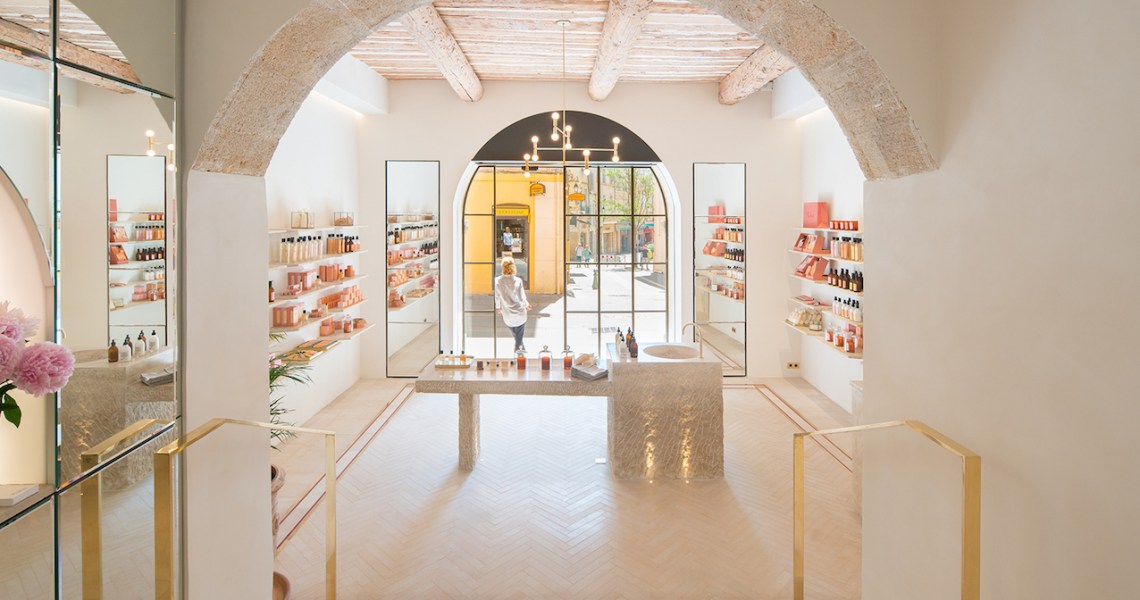Now that places like New York City have started a phased re-opening of stores and salons, beauty companies are restarting their own expansion plans. This is despite Covid-19’s ongoing presence in the U.S.
For example, waterless nail salon Glosslab has plans to open seven locations in the next 18 months in New York City, in addition to reopening its two existing locations in the West Village and Flatiron neighborhoods. Rachel Glass, Glosslab founder and CEO, said that there is so much opportunity in the form of available and less expensive commercial real estate that the 18-month timeline could even be reduced. Glass anticipates returning to profitability by the end of August and operating at pre-coronavirus levels of revenue by the end of the year.
The threat of a second wave of closures still lingers in the air; Los Angeles required a second lockdown and forced closures in early July after a surge in new coronavirus cases. But to many people, including Glass, the real estate opportunities outweigh a second lockdown scenario.
“I do believe the growth outweighs the potential risks,” she said. “History is a lesson and we know what happened. Now we are able to negotiate [coronavirus scenarios] upfront in leases, so that takes some stress off. But dealing with [the additional] employees would be more challenging, and we were fortunate [last time] to receive PPP funding.”
Glass said that she has seen landlords in New York City offer more flexible leases, including revenue-sharing agreements or smaller base rents. Glosslab is still in ongoing discussions with its present landlords about its rent for the months of April through June, such as whether it can be taken from a security deposit or reduced.
Commercial real estate saw its first annual decline in prices since 2011: U.S. commercial real estate market plunged 68% in the second quarter of the year, according to a U.S. Capital Trends report. Retail prices fared the worst of all commercial sectors (which includes offices and industrial locations), dipping 0.3% from May and down 0.7% over the past year.
Based on this, additional companies have been motivated to hit the gas pedal on expansion plans. Ulta reevaluated its 2020 expansion plans, stating it would close 19 locations in 10 states in 2020, while simultaneously opening 30 new stores beginning in August in 15 states. Other companies are in a different camp: Sephora declined to provide updated information on its expansion plans after announcing in February it would open 100 new locations in second-tier markets like Charlotte, North Carolina; Nashville, Tennessee; and San Jose, California. Morphe has pushed off further expansion plans until 2021.
Injectables brand Ever/Body reopened its flagship location in NYC’s SoHo neighborhood in June and opened a second location in Flatiron on July 29. Back in March, the Flatiron location had been four days away from opening before the government-mandated brick-and-mortar closures, said Kate Twist, Ever/Body CEO. Ever/Body raised a $17 million Series A in Sept. 2019 to fuel ambitious expansion plans, which also financially cushioned the company during the months of closure. Twist said that the cadence of opening additional locations in 2020 remains in flux, given the changing real estate market. But with attractive real estate prices, Ever/Body is heavily motivated to continue its expansion. She declined to state whether Ever/Body continued to pay its rents in April and May, only saying landlords had been flexible.
“We’re very eager to return to our plans for expansion, which we had put on hold at the start of coronavirus,” she said. “We’re looking at a significantly changed real estate landscape and we’re seeing more attractive ground floor real estate opportunities.”




